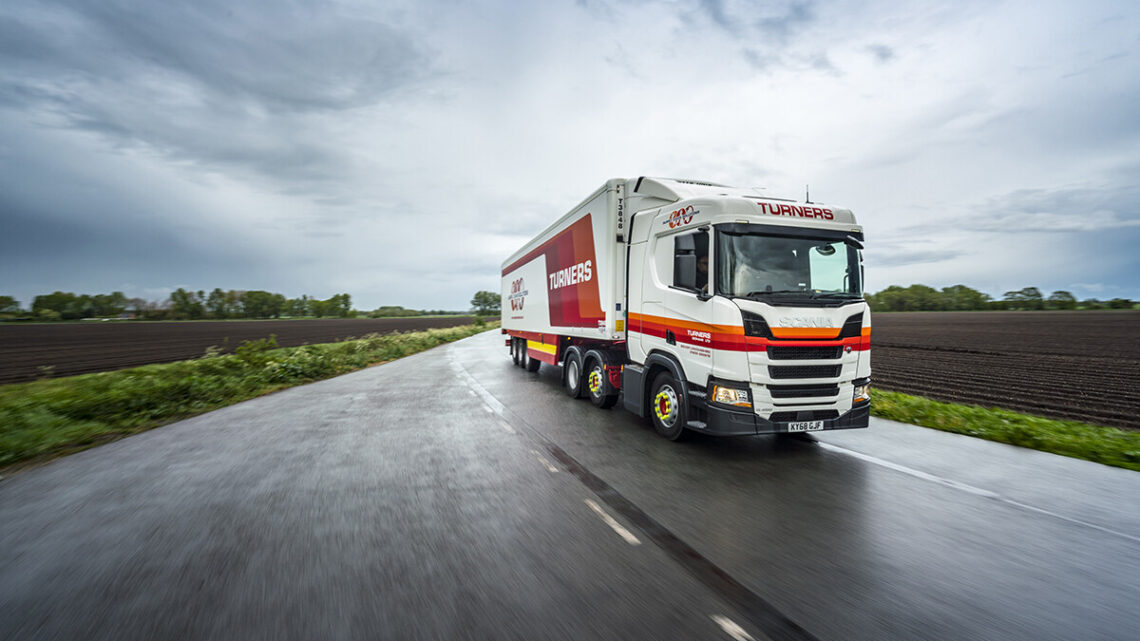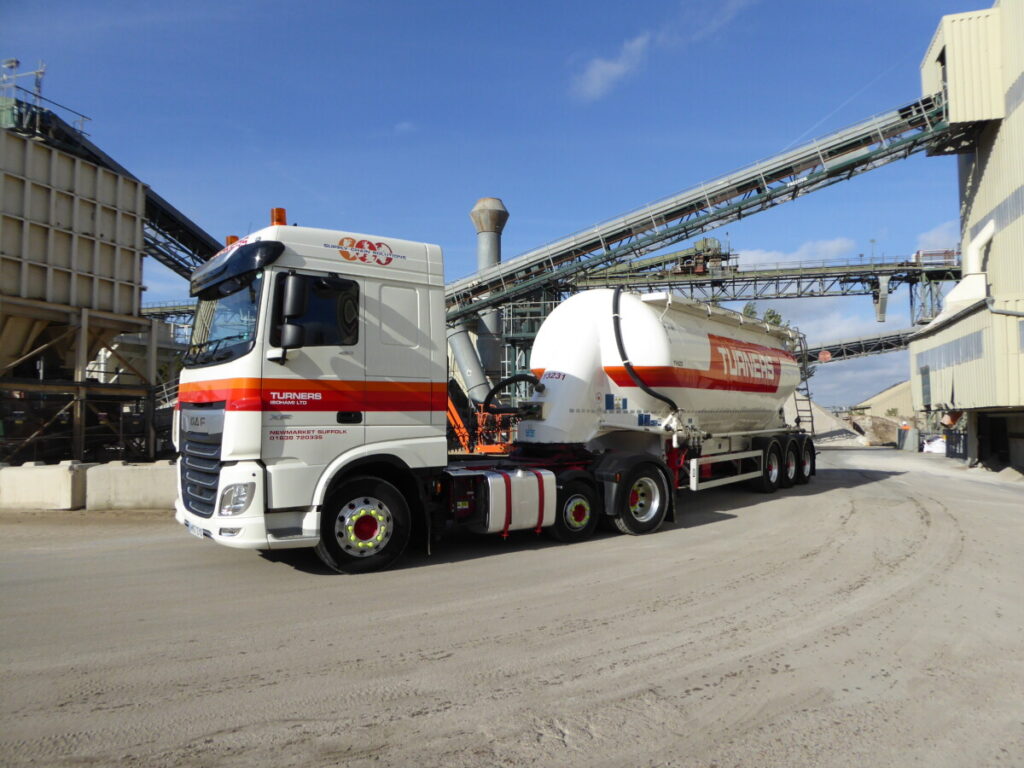
Hit the Road
Logistics is a reliability game where a breakdown in the chain can have consequences further down the line. Who better to trust with an operation that needs to be quick and slick, than a Service-leaver with driving experience?
he distribution of goods to retailers and consumers across the country requires organisation and dedication to purpose. We take a look at the industry and discuss why Service-leavers make superlative Class 1 and Class 2 drivers.
Logistics – the natural next step for qualified Service-leavers?
Logistics is a key industry in the UK. Often seen as the ‘silent’ industry, it provides the infrastructure that binds together numerous sectors, making sure that goods end up in the right place, at the right time, in the right quantity.
Logistics companies essentially oversee the transport of everything from raw materials to finished consumer products between manufacturers, wholesalers, retailers and finally, customers. The industry incorporates freight transportation, postal and courier services, as well as warehouse storage. Jobs range from management and planning, through to delivery driver roles.
There are around 195,000 logistics firms employing approximately 2.5 million people across the UK. The increase in online shopping in recent years, which has accelerated during the coronavirus pandemic, has seen the logistics industry grow as more merchandise is delivered rather than purchased in-store. Latest figures show that 27.3% of all UK retail sales are now online. As with numerous industries, growth has slowed due to the economic effects of the pandemic but is still predicted at 2.5% over the next five years.
However, there are currently jobs and skills shortages in the logistics sector, with HGV drivers being in particularly short supply. The exodus of many EU drivers in the wake of Brexit has contributed to a shortage of over 100,000 HGV drivers. Service-leavers are perfectly placed to fill logistics shortages. The Forces are dependent on a tightly run logistics team delivering fuel, ammunition, food, water, clothing and equipment to soldiers with precision timing.
Why Service-leavers are a good fit for logistics careers
The Armed Forces has its own logistics arm, with skilled and experienced staff supporting each unit by ordering, managing and delivering key supplies. Service-leavers with logistics experience can smoothly transition and progress their career in this industry. But ex-Forces staff don’t necessarily have to have a logistics background. Military careers teach a variety of trade and technical skills valuable in logistics, including driving skills, engineering and operating machinery.
Beyond this, Service-leavers develop a variety of transferable skills that are in demand in the logistics industry, including:
- Leadership
- Organisation and planning
- Time management
- Communication
- Working under pressure
- Teamwork
- Attention to detail
- Problem-solving and decision-making
You can also build on skills by accessing training and support through services such as the Chartered Institute of Logistics and Transport (CILT) or Veterans Into Logistics.

Industry view…
Turners has grown to be one of the largest and most successful privately owned Transport companies in the UK, operating in excess of 2,000 vehicles from 32 sites and employing over 3,400 people.

Drivers are a key asset to the success of Turners, and in today’s economic climate this could not be more apparent. New drivers will receive a comprehensive assessment and induction process, along with extensive training covering operational requirements and truck performance. We pride ourselves on our in-house training programmes, giving our drivers the knowledge to complete their work safely and efficiently every day.
In many operations, varying shift patterns are available to suit the driver’s requirements, and our aim where possible, is to be flexible and meet their expectations. Competitive earnings along with additional performance bonus programmes will be offered.
A family business that respects and provides our drivers with secure long-term employment – come and join the team.
Visit: www.turners-distribution.com

Major employers
Logistics companies include freight transportation businesses as well as postal and courier firms. There are also companies that specialise in maritime and port operations, or in warehousing, storage and handling. Freight logistics companies are split into those associated with just one brand, such as Amazon Logistics, and so-called third party logistics (3PL) providers. Big logistics employers operating in the UK include:
Wincanton
UK logistics and supply chain company with 17,600 employees in the UK and Ireland.
Eddie Stobart Group
UK logistics specialists running operations in the UK, Ireland and Belgium. Employs around 6,500 workers.
DHL
US courier company with 40,000 employees in the UK and Ireland.
DPD Group
International delivery company with headquarters in France but with a UK workforce of around 15,000.
Amazon Logistics
US retail giant that runs its own logistics operations and recently announced 10,000 UK jobs.
Gist
Logistics and supply chain firm based in Basingstoke, with customers including Starbucks and M&S. Around 5,000 employees.
Royal Mail
UK public limited company with a total workforce of 162,000 including around 6,000 drivers.
UPS
American courier company with a workforce of around 5,800 across the UK.

Example roles
Class 1 Driver
Qualified to drive HGV Class 1 vehicles (C+E vehicles, which are articulated lorries fitted with trailers).
Training/qualification requirements
You’ll need to have a basic HGV Category C licence which allows you to drive vehicles over 7.5 tonnes, plus you need to take an additional C+E test to drive vehicles with trailers.
Salary and benefits
Typically, between £25-50,000 plus holiday pay. (Figures by National Careers Service.)
Career progression
Can progress into management/planning roles, become an HGV instructor or take further training to drive tankers.
Working conditions
Typically, long shift-work hours totalling around 50 hours a week including nights and weekends.
Class 2 Driver
Qualified to drive HGV Category C vehicles (articulated lorries).
Training/qualification requirements
HGV Category C licence.
Salary and benefits
£18,500-35,000 plus holiday pay.
Career progression
Can take a further test to become a Class 1 driver.
Working conditions
Long shift-work hours totalling around 50 hours a week including nights and weekends
Delivery Van Driver
Collecting parcels from depots and delivering to retailers and individual consumers.
Training/qualification requirements
Full driving licence and good driving record.
Salary and benefits
£16-24,000 plus holiday pay if on an employment contract.
Career progression
Can move towards HGV driver roles, personal security driving or managerial/delivery coordinator roles.
Working conditions
Typically, 45 hours a week including evenings, weekends and holidays.
Resources
Chartered Institute of Logistics and Transport (CILT): www.ciltuk.org.uk
Veterans Into Logistics: www.veteransintologistics.org.uk
RLC Foundation : www.rlcfoundation.com
Logistics UK: www.logistics.org.uk



